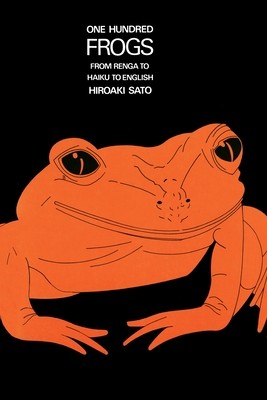
- We will send in 10–14 business days.
- Author: Hiroaki Sato
- Publisher: Weatherhill
- Pages: 241
- ISBN-10: 0834801760
- ISBN-13: 9780834801769
- Format: 13.8 x 21.1 x 1.7 cm, minkšti viršeliai
- Language: English
- SAVE -10% with code: EXTRA
Reviews
Description
No other Asian poetic form has so intrigued and beguiled the English-speaking world as the Japanese haiku. Even before World War I such imagist poets as Ezra Pound, Amy Lowell, and John Gould Fletcher were experimenting with the form. At that time, Pound well described the haiku as "an intellectual and emotional complex in an instant of time." Indeed, it is the haiku's sense of immediacy and its precision that continue to appeal to poets and poetry lovers today.
In recent decades there has been an upsurge of interest in the haiku, leading to a number of critical studies of the form, studies that have now culminated in the present book. This insightful work not only considers the haiku itself but also the extremely important yet often ignored renga or linked-verse form, out of which the haiku grew. No deep understanding of the haiku is possible without familiarity with the renga. One Hundred Frogs begins with a detailed history and description of the renga and haiku. Many renowned Japanese poets, most notably Basho, are represented in the wealth of translated poetry that illustrates the text. To bring this history up to date, a discussion of modern Japanese and Western haiku is included. Next, the author discusses the craft of translating renga and haiku and explores recent developments in the two forms, offering a representative selection of modern works. To reveal the myriad choices open to translators of renga and haiku, the author provides an in-depth analysis of one of Japan's most famous haiku, Basho's poem about a frog in a pond, and presents a compilation of over one hundred translations and variations of the poem. The book closes with short anthologies of English-language renga and haiku by contemporary Western poets that offer a tantalizing glimpse of the diversity of expression possible with these two forms. An instructive celebration of the renga and haiku, this volume furnishes a new perspective on the work of some of Japan's outstanding poets of old and lays a foundation for the appreciation of the renga and haiku that are being written today.EXTRA 10 % discount with code: EXTRA
The promotion ends in 21d.23:29:04
The discount code is valid when purchasing from 10 €. Discounts do not stack.
- Author: Hiroaki Sato
- Publisher: Weatherhill
- Pages: 241
- ISBN-10: 0834801760
- ISBN-13: 9780834801769
- Format: 13.8 x 21.1 x 1.7 cm, minkšti viršeliai
- Language: English English
No other Asian poetic form has so intrigued and beguiled the English-speaking world as the Japanese haiku. Even before World War I such imagist poets as Ezra Pound, Amy Lowell, and John Gould Fletcher were experimenting with the form. At that time, Pound well described the haiku as "an intellectual and emotional complex in an instant of time." Indeed, it is the haiku's sense of immediacy and its precision that continue to appeal to poets and poetry lovers today.
In recent decades there has been an upsurge of interest in the haiku, leading to a number of critical studies of the form, studies that have now culminated in the present book. This insightful work not only considers the haiku itself but also the extremely important yet often ignored renga or linked-verse form, out of which the haiku grew. No deep understanding of the haiku is possible without familiarity with the renga. One Hundred Frogs begins with a detailed history and description of the renga and haiku. Many renowned Japanese poets, most notably Basho, are represented in the wealth of translated poetry that illustrates the text. To bring this history up to date, a discussion of modern Japanese and Western haiku is included. Next, the author discusses the craft of translating renga and haiku and explores recent developments in the two forms, offering a representative selection of modern works. To reveal the myriad choices open to translators of renga and haiku, the author provides an in-depth analysis of one of Japan's most famous haiku, Basho's poem about a frog in a pond, and presents a compilation of over one hundred translations and variations of the poem. The book closes with short anthologies of English-language renga and haiku by contemporary Western poets that offer a tantalizing glimpse of the diversity of expression possible with these two forms. An instructive celebration of the renga and haiku, this volume furnishes a new perspective on the work of some of Japan's outstanding poets of old and lays a foundation for the appreciation of the renga and haiku that are being written today.

Reviews